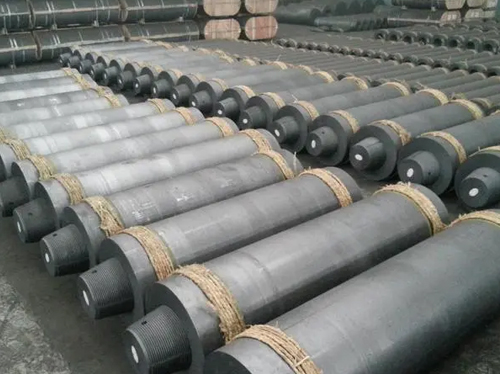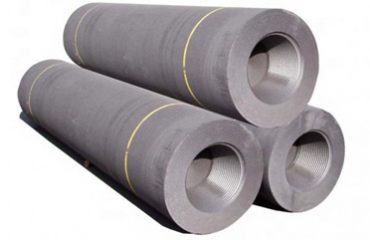
Graphite Electrodes play a crucial role in multiple industrial fields.
In the process of electric arc furnace steelmaking, graphite electrodes are key components. When an arc is generated between the electrode and the furnace charge, a huge amount of heat is released, and the temperature can reach thousands of degrees Celsius. This high heat can quickly melt raw materials such as scrap steel, enabling the steelmaking process to proceed efficiently. Moreover, graphite electrodes have good conductivity, which can ensure stable combustion of the arc. In this process, the electrode itself has relatively small losses and can withstand the impact of high temperature and strong current for a long time, ensuring the continuity of steelmaking operations. For example, in the steelmaking workshops of large steel companies, by using graphite electrodes, a large amount of scrap metal can be remelted into high-quality steel, meeting the demand for steel in many industries such as construction and machinery manufacturing.
Graphite electrodes are also indispensable in the smelting of mineral thermal furnaces. For example, in the production of ferroalloys, calcium carbide and other products, a high-temperature environment is required inside the blast furnace to promote chemical reactions. Graphite electrodes can provide a stable heat source and effectively convert electrical energy into thermal energy. Its high purity and good chemical stability prevent it from easily reacting with the materials in the furnace, thereby ensuring the quality of the smelting products. Moreover, its high temperature resistance ensures that electrode damage will not occur during the long-term smelting process, which may affect production progress.
In addition, graphite electrodes are also used in the electrolytic aluminum industry. Although the main electrode material is a pre baked anode, graphite electrodes can be used as auxiliary electrodes in some special electrolytic cell structures or experimental studies. It can help conduct current, maintain the normal operation of the electrolysis process, and also play a certain role in controlling the quality and production efficiency of aluminum electrolysis.
Graphite electrodes, with their excellent conductivity, high temperature resistance, and chemical stability, have become key materials in many industrial fields such as steel, metallurgy, and non-ferrous metals, promoting the smooth progress of industrial production.

